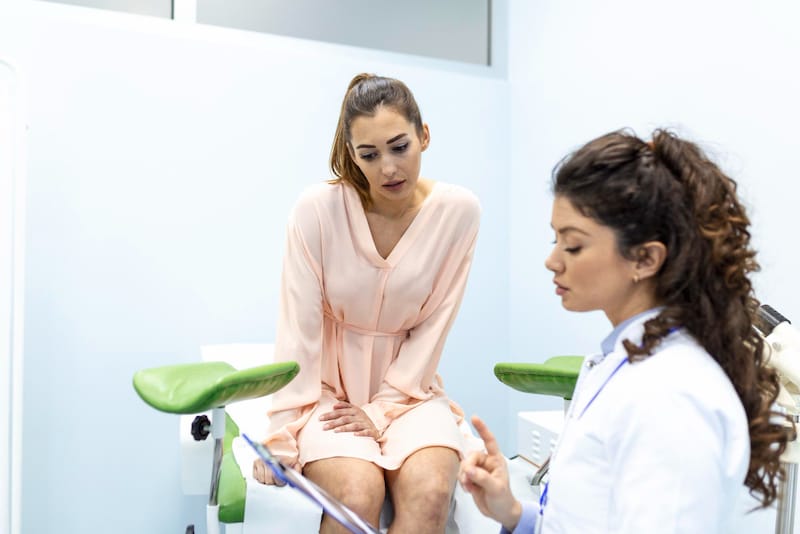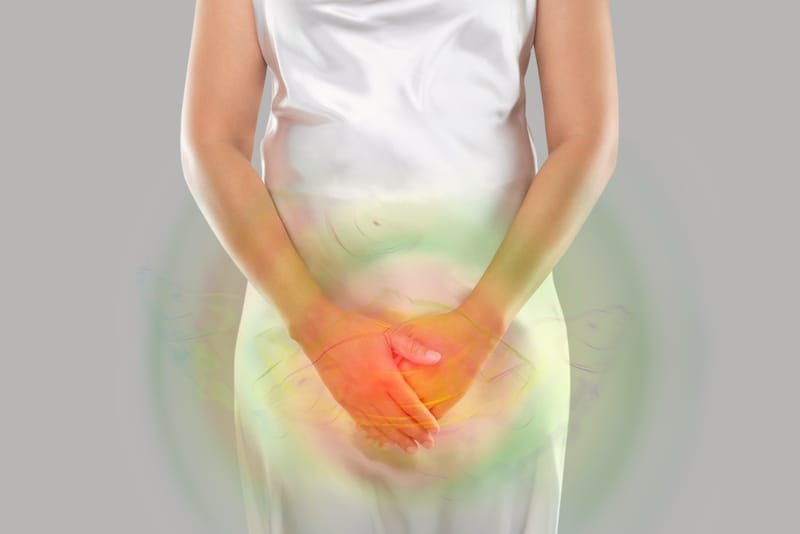BV is a mild vaginal infection that’s caused due to overgrowth of bad bacteria in the vagina and, in turn, disturbs the pH balance. Menstrual blood is also responsible for increasing pH level to 7.4, which can aggravate the already present symptoms of BV. After your periods are gone, the symptoms of BV can become mild and might even go away entirely as the pH balance of the vagina somehow restores to normal with periods being gone. But there’s no surety, and it’s crucial to follow better hygiene practices during this time to ensure you’re treating your BV even during your periods.
Bacterial vaginosis is a stubborn infection in the vagina that needs a lot of help and careful attention to get rid of it for good. But treating it isn’t easy, and many other factors surrounding your vagina and activities you’re involved in can make the healing more difficult.
BV and periods are directly related to the pH imbalance of the vagina and are interrelated in more ways, you know. While BV imbalance the normal pH balance, so do your periods.
In such cases, is it possible for BV to actually get healed once your periods are over? Or does it make the situation even worse? Let’s find out!
Causes and symptoms of BV

Many women suffer from recurring BV because getting rid of it can be that difficult sometimes, but for those who have experienced BV for the first time, it can be tricky to know if it’s BV or any other infection.
The most common symptom of experiencing BV is the smell that’s a part of this infection. BV is caused by a disturbance in the balance of bacteria in the vagina and can happen for various reasons.
Other symptoms to recognize BV include:
- A thin white or gray discharge
- Vaginal irritation or discomfort
- Burning sensation while peeing
- Pain, burning, or itching on the inside or outside of the vagina
Getting BV during periods
Recognizing BV symptoms is still easier when you’re not on your periods. But it can be tricky if you do get it during your periods.
Often periods are uncomfortable and can smell bad from time to time. During this time, the signs of infection of BV almost go unrecognizable.
The vaginal discharge can also go unnoticed as it doesn’t stand out with periods. Even the fishy smell might get masked by the menstruation.
How are BV and periods related?
What BV and periods have in common is disturbing the normal balance in the pH level of the vagina.

The average pH level of the vagina is between 3.8 and 4.5, which is acidic. However, this balance can sometimes differ due to certain situations and age.
This pH level is essential for the vagina because it helps protect us from harmful bacteria and yeast and prevents them from multiplying too quickly, ultimately leading to an infection.
However, if the pH level goes above 4.5, it directly invites the bad bacteria to grow and cause various infections such as bacterial vaginosis.
Having unprotected sex, taking certain antibiotics, douching, or during periods can also cause an unbalanced pH level of the vagina.
During periods the pH balance of the vagina goes haywire due to the blood and raises it to 7.4. Using pads can make the vagina less acidic if not changed on time.
Can BV go away after your period?
BV and period both disturb the vaginal bacteria by disturbing the normal pH level. After understanding their relationship, it’s safe to say that periods can make the BV more severe since they affect the pH level.
Your BV can become more prominent with the periods. Since BV causes an overgrowth of the bacteria in the vagina and natural hormonal changes and the high pH due to periods can trigger the infection.
But as soon as your periods are resolved, the symptoms of BV do calm down and can even go away completely, making you get rid of this vaginal infection for good.
During your periods, it’s vital to take more special care of the BV. One way to achieve this is to use pads instead of tampons and change them frequently.
The antibiotic treatments may involve using vaginal suppositories, which won’t work as they should if a tampon is used.
Tampons will absorb the medicine making the treatment ineffective. Also, tampons might irritate during this sensitive time, so using pads makes sense.
Taking care of BV during periods

It might be possible that you have slight symptoms of BV before the periods, which might become more prominent during the periods due to the disturbed pH level of the vagina.
When treating BV, it’s essential to take care of the period hygiene and do it in a way that is also comfortable for you at the same time.
While wearing pads is the right option, starting your BV treatment during the periods is the right thing to do. Don’t wait until your periods are over to treat it, as symptoms of BV can become more severe during this time.
If it’s recurring BV, check if your IUD is causing interference. Sometimes, certain IUDs can cause BV to recur.
You’re more at risk of getting BV if you have a new sex partner, so don’t indulge in sexual activities or don’t change your sexual partner.
Make sure to practice good hygiene during the periods so your BV symptoms can lessen.
FAQs
Why do I get BV after my period?
BV and periods create an imbalance in the pH level of the vagina.
During periods the pH level can go as high as 7.4, which throws off the vaginal environment away.
Due to the temporarily elevated pH levels, the vagina is more prone to getting an infection right after the periods go away.
How long can BV last without treatment?
Bacterial vaginosis is a mild infection that occurs due to the overgrowth of certain types of bacteria. It depends from person to person.
Sometimes, it can get better on its own by following a few home remedies, but other times it needs careful treatment to make it go away. It can even lead to pelvic inflammatory disease if not treated timely.
It’s best to take notice of the symptoms and follow better vaginal hygiene but if the symptoms worsen, then see your doctor.
Can I treat BV without antibiotics?
When BV isn’t clearing within a week of getting it, you should take antibiotics as a treatment. But if you don’t want to take antibiotics, take better care of your vagina.
Practice safe hygiene, use barrier protection during intercourse, and take probiotic supplements.
Will my period flush out yeast infection?
Having periods on your already infected vagina is one of the worse things to happen.
While it might be genuinely uncomfortable to experience both simultaneously, treating your yeast infection during the periods is necessary.
Estrogen levels are low during the periods, and blood might help flush out some of that yeast infection.
Don’t douch or do anything to aggravate the situation further but ask your doctor’s help to treat yeast infection during periods. Sometimes bacterial vaginosis can also be confused with a vaginal yeast infection.
Is BV worse on periods?
Bacterial vaginosis throws the pH level of the vagina off balance and the period blood is also responsible for the same.
During this sensitive time, your vagina has to deal with both issues. Your period blood makes the pH level as high as 7.4, which also affects the BV symptoms making it worse during that time.
But there’re ways to treat BV even during your periods, followed by hygiene practices during this time. Ask your doctor for better advice on how to treat it.
Is BV more common during pregnancy?
Pregnant women can be at more risk of contracting BV because of hormonal changes during this period. It can lead to an increased risk of premature birth and low bright weight.
So, pregnant women need to take more care and be more protective of their vaginal health during this pregnancy.
To summarise
Bacterial vaginosis does disturb the pH balance of the vagina, and so do periods. The periods can make BV symptoms worse during this time as the pH level is overly unbalanced.
But as your periods go away, your symptoms of bacterial vaginosis can lessen or calm down than during the periods. There’s a possibility that BV might even completely go away on its own after you’re done with your periods, but there’s no surety!
Make sure to discuss treatment options with your doctor and follow good hygiene practices during your periods.


